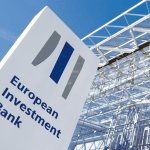ESG Experts Stress Importance of Climate-Related ESG Disclosures, Share Best Practices at Benchmark ESG Forum

ESG Experts Convened by Benchmark Digital Discuss Mandatory and Voluntary ESG Disclosure Landscape, Offer Insight on the Value of Investment-Grade ESG Data and How To Capture It
Benchmark Digital Partners (Benchmark), a leading provider of cloud-based Environmental, Social and Governance (ESG) software solutions, last week convened its third ESG Executive Collaboration Forum, where ESG professionals discussed the present and impending disclosure needs of companies and best practices for addressing them. Specifically, Forum speakers discussed how business leaders can navigate recent and anticipated developments in government-mandated ESG disclosures and converging voluntary reporting frameworks, as well as the lasting value companies can unlock by automating and improving ESG data management.
“Companies today are under immense pressure—from regulators, investors, employees, customers, suppliers and the public—to provide verifiable evidence of their sustainability performance,” said Benchmark Corporate Development & Strategy Officer, Donavan Hornsby. “These Forums help business leaders across industries identify the ESG issues that matter to their bottom lines and to their stakeholders. Our goal is for ESG veterans and newcomers alike to understand the lasting value of high-quality, investment-grade ESG data and share their insights on how companies can best engage cross-functional stakeholders in the management of ESG data and programs.”
Featured guests at this event included Gabriela Troncoso Alarcón, Senior Expert Services Manager, Enhesa; Katie Secrist, Vice President, Sustainable Business Consulting, LLC; and Dr. Mark McNees, Director of ESG Education, Florida State University, Jim Moran College of Entrepreneurship.
See related article: MSCI Upgrades CNO Financial Group’s ESG Rating to A
Troncoso explained that, faced with an increasingly fragmented mandatory disclosure landscape and shortage of relevant in-house talent, business leaders must look to trends in both obligatory disclosure rules and voluntary reporting frameworks for guidance. In fact, “countries that release more emissions are more likely to require ESG disclosure.” According to Troncoso, the disclosure framework Task Force on Climate-related Financial Disclosures (TCFD) is a top choice as “some countries are going a step further and prescribing what standard they should use.”
Considering the increasingly widespread uptake of the TCFD disclosure framework by government regulators, Secrist honed in on best practices for TCFD-aligned disclosures and shared what the organization’s recommendations really mean for companies. “What the TCFD is really asking us to do in their recommendations is to reevaluate our existing structures, get real with our boards, get real about the realities of climate and not dance around the conversation anymore.”
But, according to Dr. McNees, establishing an understanding of what is expected of corporate ESG disclosures is just the first step business leaders need to take in implementing a durable, effective ESG program. For leaders to not only meet but exceed these expectations, Dr. McNees explained that they should:
“1. Engage with stakeholders, from consumers to regulators.
2. Engage with investor pressure.
3. Own your ESG narrative.
4. Understand your data.
5. Embed ESG more widely than just a sustainability team.”
To accomplish these tasks, investors responding to a recent Benchmark-commissioned survey advised that companies adopt relevant enterprise ESG program management solutions. Discussed at length during the first ESG Executive Collaboration Forum of 2022, the 2021 Benchmark ESG Survey: Investor Attitudes on Company ESG Data found that 32% of investors think a “lack of digital technology for quality data collection” is the primary barrier to companies’ collection and use of investment-grade ESG performance data, among other findings.
“Benchmark Digital’s inaugural survey of 770 investment decision-makers confirmed what we have suspected all along, investors are dissatisfied with the ESG data they receive from companies and are looking for companies to implement better enterprise ESG program management, measurement, and reporting solutions,” observed Hornsby.
Source: Benchmark Digital Partners









